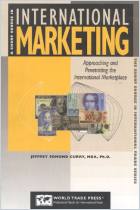Sales and marketing guru John Westwood’s comprehensive guidebook contains all the basics on exporting, including what types of firms should export and how they can do so successfully. Exporting offers numerous benefits to healthy businesses, including the opportunity to tap into the $68 trillion global economy. Selling your products in other countries can be bafflingly complex; Westwood himself experienced complications and yet remains a proponent. Though written somewhat like a textbook, his treatise provides a useful overview for managers who are considering expansion into foreign markets. getAbstract recommends it as a good starting tool for determining if exporting is right for your firm.
Healthy Businesses Should Export
Any good business with quality products, strong sales and resources for expansion should consider exporting. Success in your domestic market can lead to similar success in the same niche in other countries. Exporting puts your products or services before an entirely new group of prospects. Most national governments offer exporters direct support ranging from marketing research to inclusion in trade missions and trade fairs.
Marketing overseas reveals remarkable opportunities. Besides increasing sales, exporting enhances productivity, builds new revenue and additional profit, enables new economies of scale, provides a better return on R&D, and extends the lifespan of exported products or services.
The profits from additional customers in other nations can justify the costs of planning and developing new products or services. If your domestic competitors are thriving through exporting, you need to expand to other markets to keep up. Exporting exposes your firm to new ideas, which can lead to better products and more efficient operations. Small firms can export as successfully as large ones. However, if you are unprofitable at...

















Comment on this summary or Iniciar a Discussão